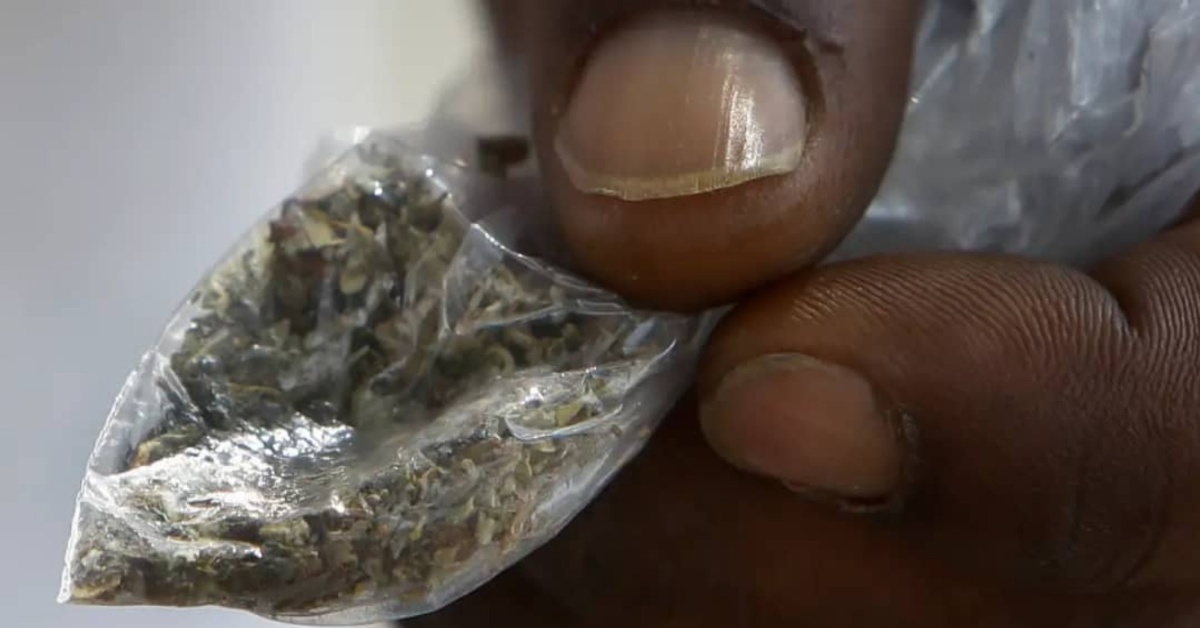Sierra Leone Has a Substance Abuse And Not a Kush Problem. Does That Sound Like a Broken Record?
Sierra Leoneans often scapegoat one problem for others. For instance, for every ailment, they blame malaria or typhoid without a doctor’s diagnosis! The synthetic drug “Kush” is the latest whipping boy for almost every case of substance addiction or reported substance-overdose death.
In reality, the country currently faces a substance abuse crisis, which is the abuse or excessive use of illegal drugs (like “Kush,” among others), prescription drugs, over-the-counter (OTC) medication, or alcohol, often resulting in substance use disorders and substance overdose deaths. Understanding substance abuse as a broad reference to many addictive drugs makes for a holistic national response that addresses the threat posed by all harmful substances, not just “Kush.”
Against this backdrop, Friday evening August 11, 2023, I had the opportunity to visit and engage with some leaders and actors in the adjacent local communities of Cassel Farm and Alpha Morlai in eastern Freetown, two of my early childhood stomping grounds. All thanks to two selfless young men-my nephews Pastor B.M. Foh, a youth educator, and Sahid Bangura, a mental health practitioner for arranging the visits.
Both men, without fanfare, have been in the trenches volunteering their time as well as expending their meagre personal resources to provide direction for and support to the next generation of Sierra Leoneans, and I can vouch that they have turned around the lives of many who otherwise would be on the sick bed or dead.
But boy, how sobering can it get coming face-to-face with the stark reality of dozens of young lives wrecked by substances! Nothing could have dampened my usually upbeat outlook on the next generation of Sierra Leoneans more than the virtual drug den that the once-majestic Datsun building on Old Balck Hall Road in Freetown has become, with tens of substance-wasted young people huddling or milling around aimlessly, only waiting for the next chance to get “high.” Multiply that by several factors in Freetown and around the country, and you get a clear picture of the thousands of substance-disordered young people, including those with severe co-morbidities and others who die from substance overdose.
The visit followed a viral social media clip of a march by irate but good-faith Cassel Farm community residents in the wake of a young resident’s drug-overdose death. “Ratlan” (cane) in hand, the marchers threatened to whip young people caught doing drugs in the community.
As sad as the young man’s death, however, the spontaneous community mobilization sparked by it shined a bright light on the residents’ utter frustration with the lack of action other than that by the community and their resolve to take the initiative and protect their own. But without coordinated leadership from outside, even such well-intentioned initiatives could fizzle out should harm or death result from caning drug users, who often present with substance-compromised health.
Cassel Farm and Alpha Morlai reflect the nation’s substance abuse conundrum. They offer hope as well as make for despair. Hope because the communities recognize the seriousness of the problem and demonstrate a willingness to make a difference sans outside support. Hope also because some users recognize that substances have virtually entrapped them and cry for help that they cannot receive soon enough.
Despair because a community member attempted to discourage a willing resident from escorting us for direct engagement with a group of substance abusers. Still, some community actors and substance users only see the potential for a “harvest festival” when private individuals show up and offer to assist. One moment of despair also had a youth leader enthusiastically recounting how he regularly seizes drugs from young people under his wing and trashes them in the bathroom. Well, that claim held up only as long until my friend Sahid Bangura’s quick presence of mind busted the claimant’s palm-concealed lighter and wrapped “joint.”
On balance, though, Cassel Farm and Alpha Morlai offer great hope for beating back or reversing harmful substances, but only with coordinated leadership and support, which further delay or denial could result in substance abuse eating up the country’s human capital investment.












I agree with you on this.
Before the discovery of Kush, I was hearing about youths being engaged in the abuse of a medicine(Relief) that was meant to cure pain, cold, flu etc. Instead of taking it according to the normal prescription of 1 or 2 tablet(s) per day base a person’s BMI,they tend to take the whole card at once which posed a threat to one’s life and this is a call for concern.
My advice is, let the health Ministry conduct a whole sensitization on substance abuse and it significant effects on the health and well-being of human and the seciety, by so doing, we’ll notice a dramatic change in the lifestyle of youths in Sierra Leone.
Mohamed foday kanu, B.Sc.Public Health.